Is it OK to use the Indexing API for non-jobs?
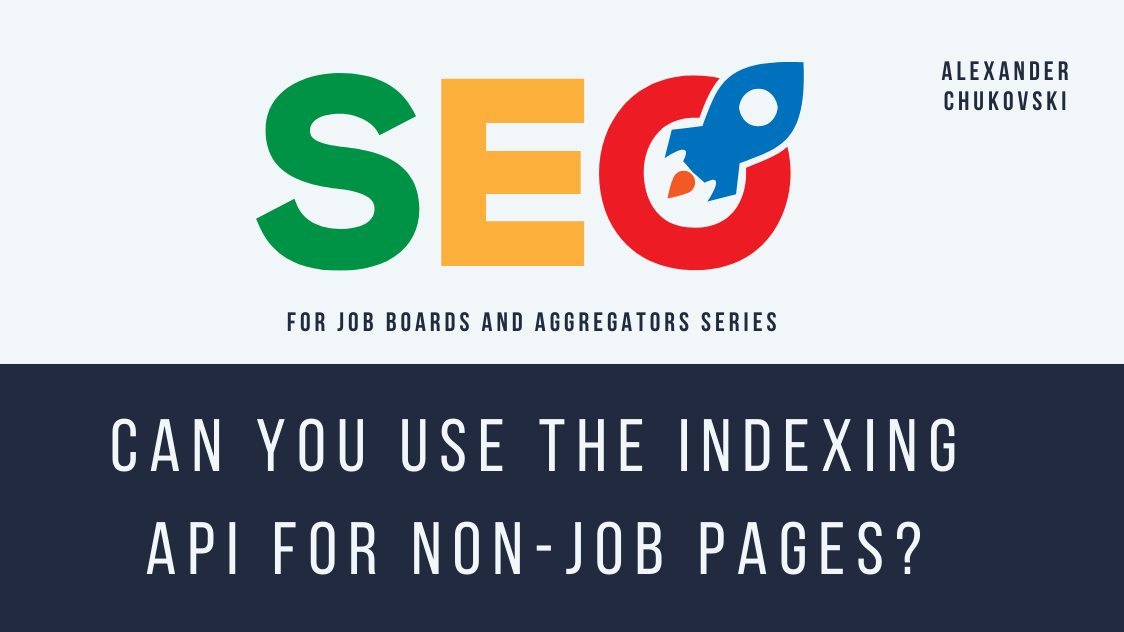
Should you use the indexing API for pages that are not job postings or broadcast events?
In my last article "Do job sites still need to a submit sitemap?" I had one section dedicated to the fact that people stopped using sitemaps because they use the Indexing API to submit jobs and their job board Search Pages and blogs.
What is the Google Indexing API?
Google's Indexing API is a tool that allows website owners to quickly inform Google when they add, update, or remove content on their sites. This helps Google update its search results faster, ensuring that users see the most current information when they search. Primarily used for job listings and live events, this tool is handy for websites with frequently changing content.
Can you use the Indexing API for non-job pages?
I have been seeing a lot of advice on Twitter SEO and heard this from a few clients who received this advice from agencies. I have also seen plenty of borderline crazy suggestions - use multiple service accounts once the quota is fully used.
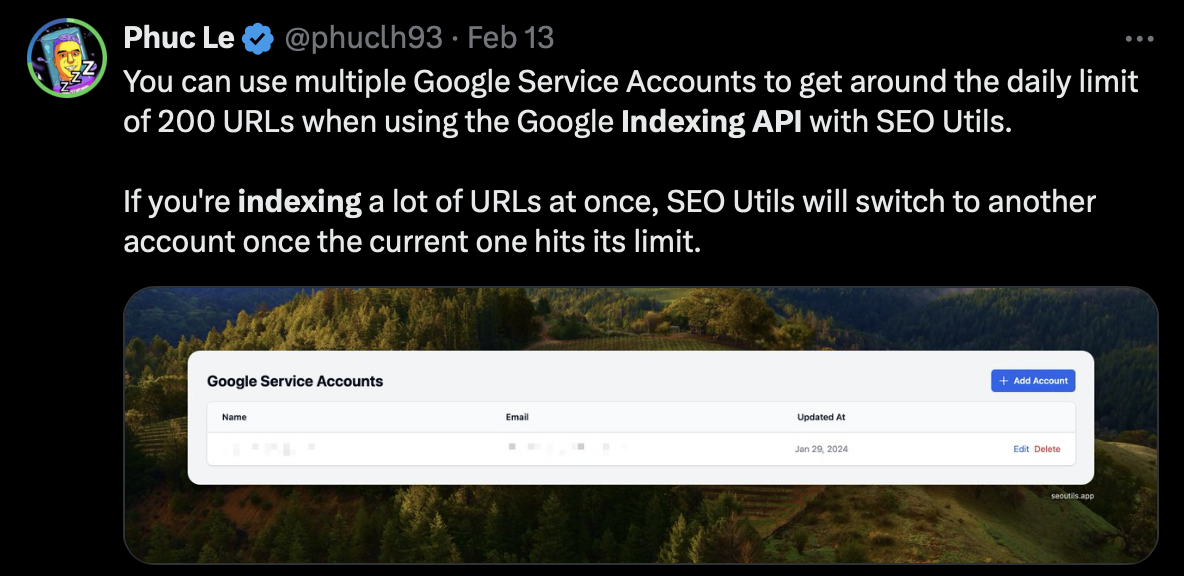
It's important to note that this API is intended primarily for job posting URLs and live-streaming videos. Using it for other types of content could be seen as a misuse of the service, potentially violating Google's guidelines.

On the other side, we have some claims from SEO influencers that it works and leads to quicker indexing of new or updated content, giving a competitive edge in getting your pages served faster.
Why do people claim the Indexing API can be used besides job pages?
Remember that many people on SEO Twitter often claim that a strategy works because they support using their tools or drive traffic to their affiliate links. Even if it worked for one or two sites they tested, this is not rigorous.
In this case, tons of indie startups sell nothing but an Indexing API wrapper to niche bloggers, promising fast indexation.
There are even open-source tools:
The funniest argument I heard is that Google does not know that you are not sending job ad pages. Of course, they know – non-job-ad pages don’t have the job posting schema, LOL.
Reports on Twitter and other social platforms also suffer from selection bias. Users with positive experiences are likelier to share their success stories, while those who didn't achieve the desired results might not speak up as readily.
Evidence against using the Indexing API for non-job pages
Well, I am here to share a negative experience testing this strategy, and you can see the impact of organic search on a site I started for this test. The effect is also long-term, as the traffic never recovered, even after we stopped using the indexing API for non-job pages.
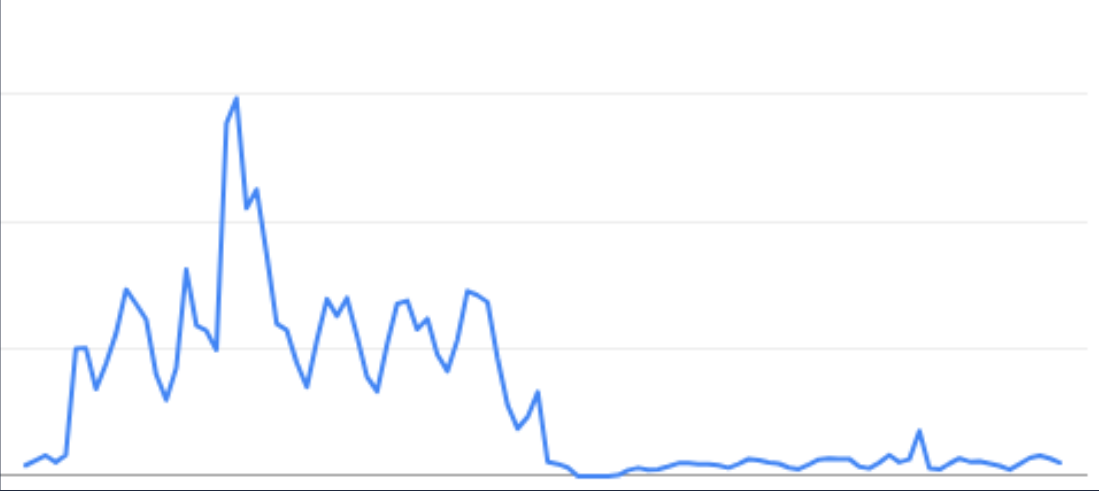
Here is one negative experience shared by Remco, founder of job.zip:
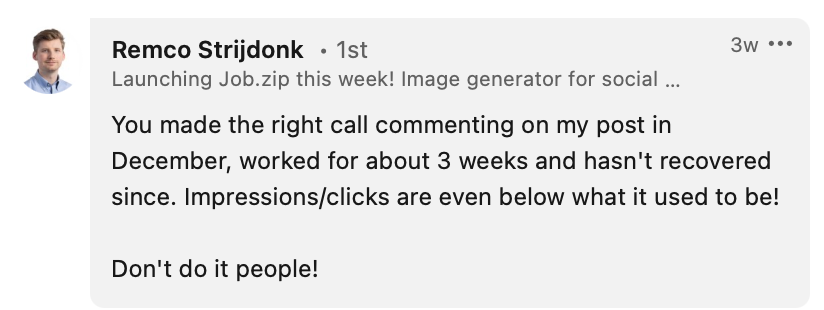
Here is another one from Marty, the CEO and Founder of JBoard:
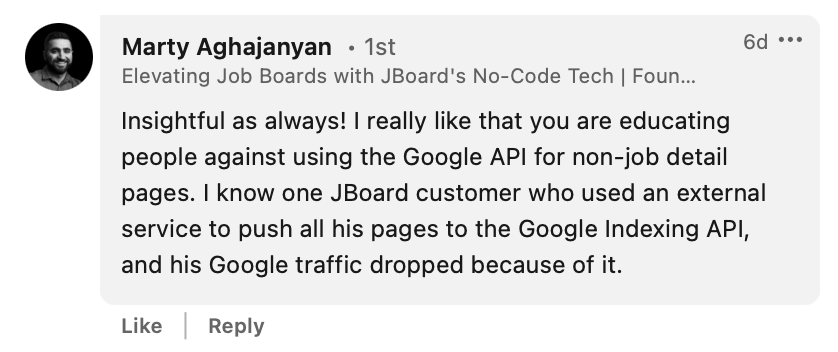
I even found some complaints from people doing the "hack" on the official Google Support forums:
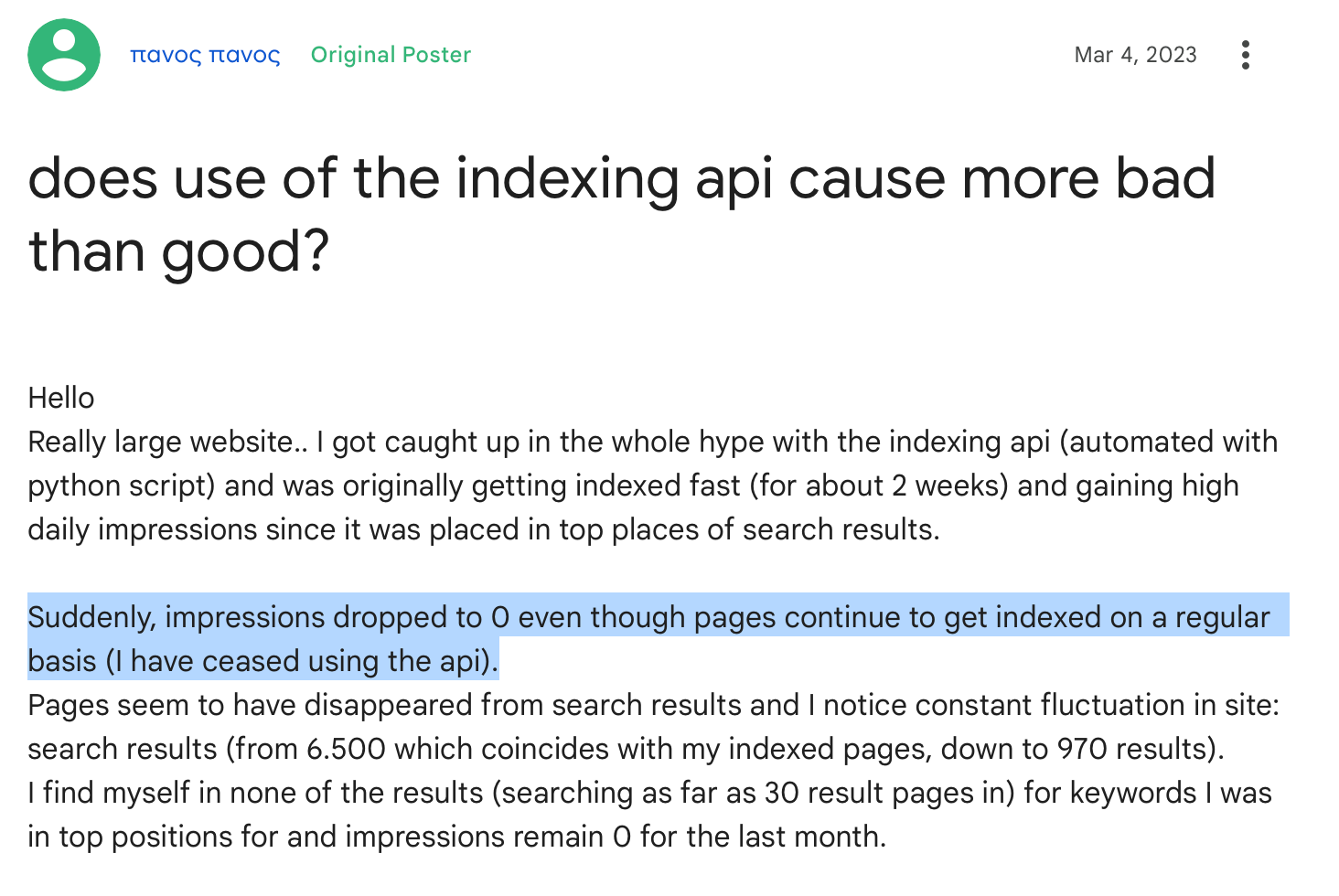
Notice how this person's site was wiped entirely from the indexing after abusing the service.
My position on SEO Hacks
Exploring new techniques is part of the dynamic nature of how SEO optimizations work, so, of course, you have to try it.
My position on these “SEO Hacks” is that they rarely work long-term. It is the same as with AI content – you get a site to rank very fast, and then, at some point, it leads to restrictions and organic penalties on your site.
I recommend not trying this on a site you deem essential in your portfolio. Also, monitor the indexing API page for changes – it might be that Google soon enables this API for other classes of pages.